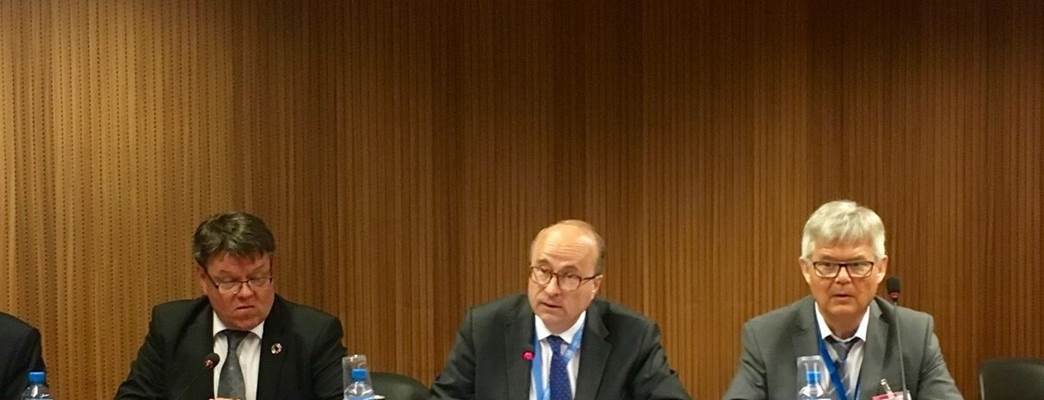On 10 May 2017 the Permanent Mission of Norway hosted a panel discussion on how to reach the most vulnerable communities with weather and climate services. Panelists from the World Meteorological Organisation (WMO), the Global Framework for Climate Services (GFCS), the World Bank as well as the International Federation of Red Cross and Red Crescent Societies (IFRC) elaborated on the role of weather and climate services in preparing for and reducing the impact of natural disasters.
Climate services play an essential role in informing decision-making, planning, and policy-making processes to reduce weather related vulnerabilities. Great strides have been made in developing and employing such systems, however, there are significant gaps in reaching the “last mile” – the most vulnerable and exposed populations.
States have agreed to increase their accountability on the effectiveness of, and access to, weather and climate information. This is reflected in the adoption of target G in the Sendai Framework: “Substantially increase the availability of and access to multi-hazard early warning systems and disaster risk information and assessments to the people by 2030.”
Ambassador Hans Brattskar, Permanent Representative of Norway, opened the panel discussion, noting the increase in the frequency and severity of disasters caused by hydrometerological hazards worldwide. He reaffirmed Norway’s strong commitment and collaboration with the WMO and GFCS to strengthen climate services.
Also Dr Petteri Taalas, Secretary General of the WMO, spoke about the increase in natural disasters and the impact of climate change. He thanked donors that contribute to the development and sustainability of weather and climate services and early warning systems. He further highlighted that 70 countries in the world do not yet have climate services and need support in establishing these.
Chair of the Intergovernmental Board on Climate Services (IBCS), Mr Jens Sunde, underlined GFCS’s role in connecting user needs with climate services. The Global Framework for Climate Services is a major WMO-led international initiative launched in 2009. Sunde underlined the need for cooperation and coordination of initiatives: to utilize synergies and maximize the benefits of investments and resources being applied.
Daniel Kull, Senior Disaster Risk Management Specialist at the World Bank Group, emphasized the benefits of investing in early-warning systems and reliable climate services. Significant development gains are lost in natural disasters. The impact on the most vulnerable are more severe as they depend on fewer assets for their livelihoods and lack resources to recover. He referenced a number of global initiatives targeting cooperation on advancing early warning systems and said that structures like the GFCS, CREWS and the Green Climate Fund brings actors together and create more robust and longer lived initiatives that have a greater chance of making an impact.
Senior Officer on Climate Change Coordination at IFRC, Ms Tessa Kelly, underlined IFRC’s dedication to working with vulnerable communities on strengthening resilience. Experiences from the field show that inclusive dialogue and interaction with people in exposed and vulnerable areas are crucial to designing effective systems for early warning and thereby reducing the impact of disasters.
She emphasised that information does not help anyone unless it is translated into concrete decisions. It is therefore important to identify decisions that will bring the greatest benefit to the most vulnerable and the barriers to people taking timely decisions; so that climate services become actual services, not just climate information. This is challenging, but possible, Ms Kelly added.
